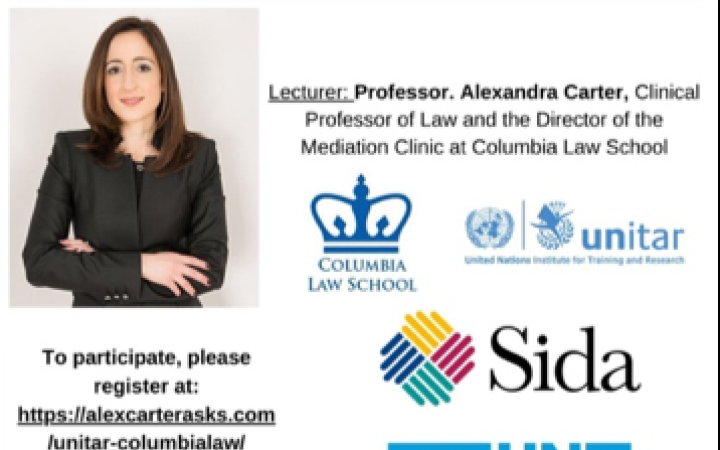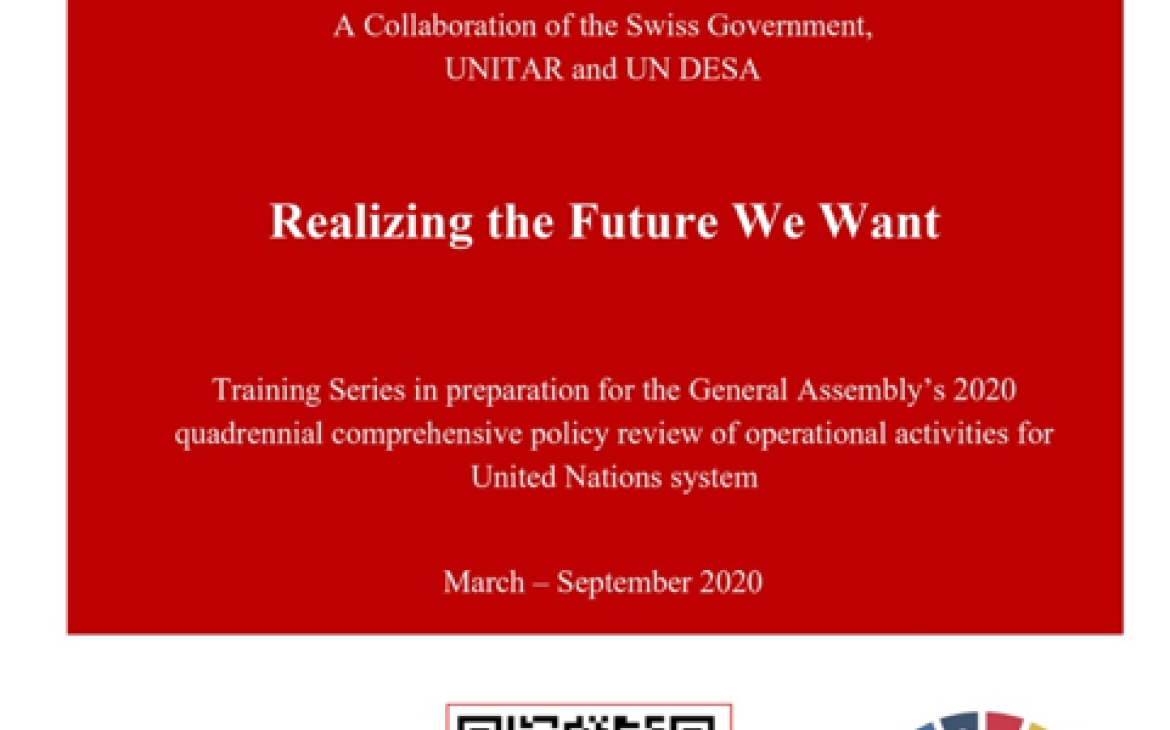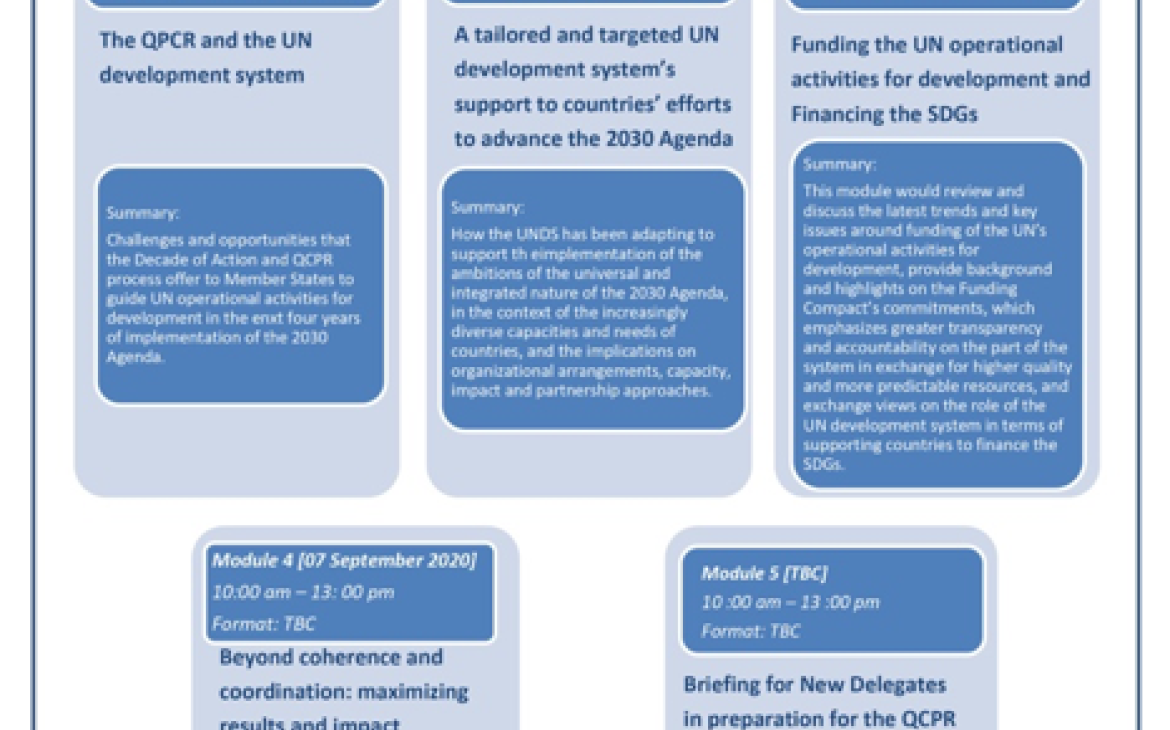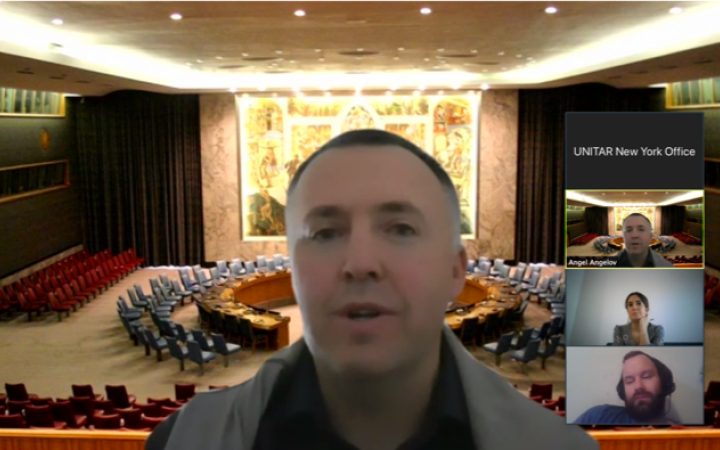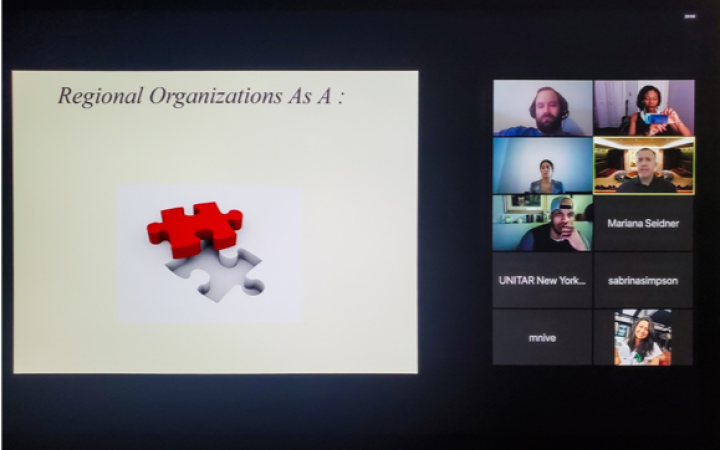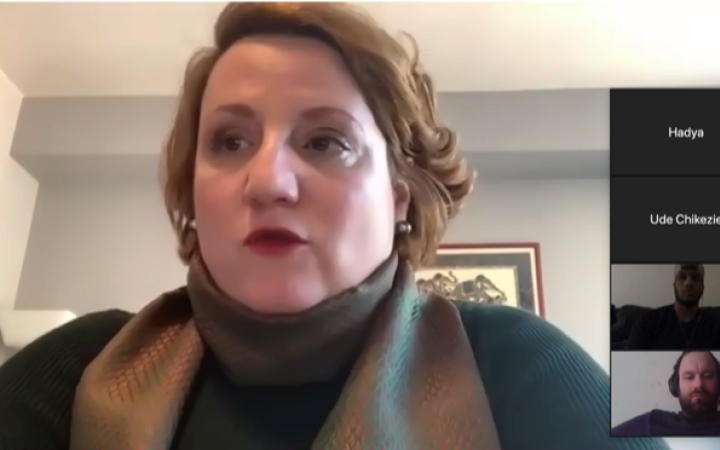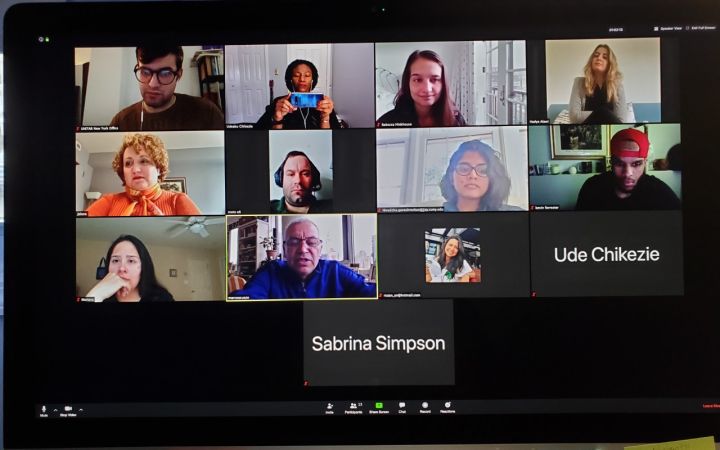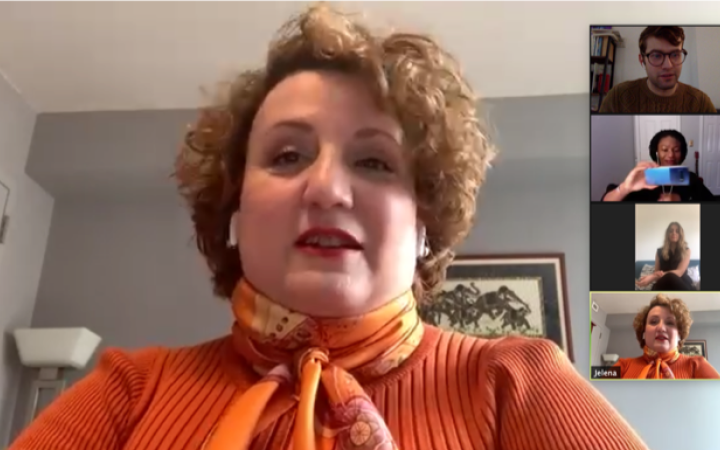3 April 2020, New York, USA - The United Nations Institute for Training and Research (UNITAR) New York Office transferred the classroom training component of UNITAR in the Headquarters to online and video conference. UNITAR has adapted its Columbia Law School Training , its first module for "Realizing the Future We Want: Training Series in preparation for the General Assembly’s 2020 quadrennial comprehensive policy review of operational activities, and our regular Global Diplomacy Initiative (UGDI) Programme for the Spring Session to classes following the 11 March 2020 assessment by the World Health Organization (WHO) that COVID-19 was a pandemic.
Our spring training on conflict resolution, mediation, and negotiation which started the 22nd of March 2020, will also resume online with Professor Alexandra Carter, Director of the Mediation Clinic of Columbia Law School and will take place via zoom: https://alexcarterasks.com/unitar-columbialaw/ on the 22nd of April and will focus on Gender Equality in Peace Building and Conflict Resolution. This workshop begins with understanding the importance of gender equality in the workplace and in negotiations. The session focuses on the relevance of women’s inclusion in the peace negotiation process, and recognition of the barriers that currently prevent women from fully participating in negotiations. Significant trends and case studies on gender equality will be discussed. Participants will learn ways to make changes at all organizational levels. Discussions will center around the impact of changes at both individual and interpersonal levels.
The 1st Module of the QCPR sessions will also take place via zoom on Friday the 24th of April. This fist module will focus on QCPR and the United Nations Development System, going through the United Nations Challenges and opportunities that the Decade of Action and QCPR process offer to Member States to guide UN operational activities for development in the next four years of implementation of the 2030 Agenda.
Prior to the directive by the United Nations Secretary-General on COVID-19, the Global Diplomacy Initiative programme included the delivery of lectures every Friday by Ambassadors and Diplomats at conference rooms within the United Nations Headquarters in New York, as well as attendance to diplomatic meetings or events. However, in adherence to regulations by health experts and the New York State government towards combating the rapid spread of the coronavirus, vital steps like social distancing, self-quarantining, high-level hygiene practices and limits to non-essential travel became paramount. To this end, the UNITAR NYO encouraged and supported this prompt transition to an alternative form of training delivery. This, therefore, ensures that the Spring Session programme would maintain its schedule.
The first Video Conference Class took place on 13 March 2020 and was handled by Dr. Angel Angelov, First Secretary at the Permanent Mission of Bulgaria to the United Nations. He administered a training on “The United Nations Security Council Reform” where he covered the functional challenges related to the inclusion of 193 countries within one multilateral framework. Dr. Angelov also expounded on the process of adjustment based on the idea of “reform”; The conflicting interests and the conducts of the most influential states in the world within the UNSC; geopolitical ambitions, as well as the formation of alliances and counter-alliances beyond the reform process.
On 20 March 2020, via a video conference, Dr. Angelov offered the next training on the topic of ‘Regional Organizations and Conflict Resolution”. Here, he examined the role of regional organizations in conflict resolution, while focusing on the specific and ever-evolving division of labor, based on comparative strengths and weaknesses, between the United Nations and regional organizations. In both classes, the Spring Session GDI participants joined the lectures from various parts of the Tri-State Area (New York, New Jersey, and Connecticut), Washington DC, Chicago, the United Kingdom, and Saudi Arabia. As hoped for, the classes were very interactive, despite the unusual circumstances as countries worldwide battle the effects of the COVID-19 pandemic.
On week 8, the students received a training on “Women, Peace and Security’. It was administered by Ms. Jelena Pia-Comella, who was the former Deputy Permanent Representative of Andorra at the United Nations and who presently serves as the Managing Coordinator of the Support Office of the Global Action Against Mass Atrocity Crimes (GAAMAC), as well as, Adviser to the Permanent Representation of the Organisation Internationale de la Francophonie to the United Nations. Ms. Pia-Comella covered the ‘Birth of UN Security Council Resolution 1325’, women’s leadership in peace and security; women’s participation in conflict prevention and resolution and women’s access to justice for sexual and gender-based violence (SGBV) in conflict. She shared her panel a guest panelist, Mr. Grant Shubin, Legal Director of Global Justice Center (GJC), who shared on the work of his organization in addressing SGBV with an overview of the Gambia vs Myanmar genocide filling case. The class broke with an interactive question and answer session.
On the 3rd of April, week 9 the training commenced with an interactive session between the students and the UNITAR NYO Head of Office, Mr. Marco Suazo. This served as a forum to glean the participants’ level of progress and areas of challenge in order to make adjustments to the programme where necessary. Afterward, the day’s course on “Responsibility to Protect (R2P)” was taught by Ms. Pia-Comella. This class covered pertinent areas related to Human Security; Peacekeeping Operations; Preventive Diplomacy; Civil Society in action and more. Guest speakers, Mr. Bakari Sidiki Diaby who serves as General Coordinator of the African Coordination of Human Rights for the Armed Forces (CADHA) and Mr. Daouda Karamoko who is in charge of Resource Mobilization for CADHA also joined the platform to share focused aspects of their work in promoting human rights within the armed and security forces, as well as on their contributions towards the fight against impunity for human rights violations.
As the Spring session draws closer to its conclusion, UNITAR remains grateful to the diplomats and other experts who have made these classes insightful and productive, as well as the efforts made by all the GDI students to participate regardless of conflicting time zones or the difficulties related to staying safe during the CODIV-19 pandemic. UNITAR remains resolute in its efforts towards ensuring the wellbeing of staff and other stakeholders by adhering to the vital health and safety compliance measures as instructed by local and international authorities.
The GDI participants have expressed their gratitude for UNITAR’s timely and vital efforts to neither suspend the session nor alter the programme schedule whilst ensuring necessary safety compliance efforts. Mr. Marco Suazo encouraged the students to avail themselves to other online courses of interest as offered from the UNITAR learning platform to augment the canceled onsite training events which would have taken place at the United Nations Secretariat in New York. He also assured the students that every effort would be made towards informing them of overall health safety measures as circumstances evolve.


